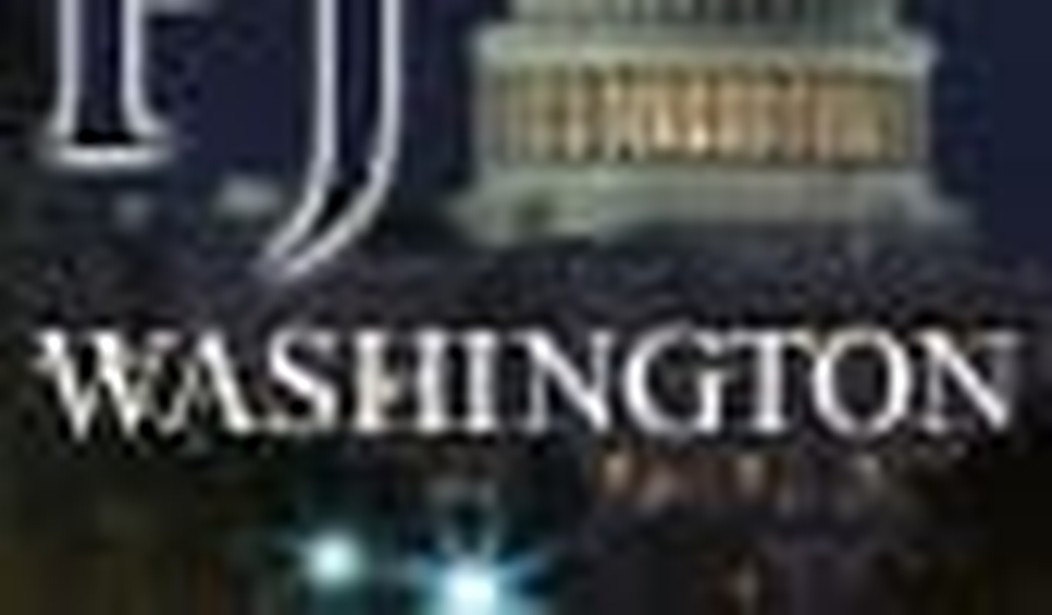WASHINGTON – One year after Congress sought major legislation to put an end to online piracy, lingering concerns over privacy and Internet freedom promise to start anew the discussion on intellectual property rights in Washington – an issue that will likely make the technology and content industries clash again.
In light of the recent death of renowned Internet freedom activist Aaron Swartz, many supporters of Internet freedom took to the web on Jan. 18 to celebrate Free Internet Day and commemorate the important role he played in the defeat of anti-piracy legislation last year. At the time of his death, Swartz faced charges for allegedly hacking into the database of a digital library and threatening to make millions of academic articles free to the public.
Like many, Swartz worried about how the Internet is used and who controls the information that flows on it. This led him and a diverse group composed of civil liberties groups, Internet activists, and technology companies to stand against two major anti-piracy bills considered by Congress last year.
The House of Representatives’ Stop Online Piracy Act (SOPA), introduced by Rep. Lamar Smith (R-Texas), intended to end online piracy by blocking websites accused of copyright infringement. The bill was shot down last year over concerns that its reach was too broad, resulting in a crackdown on legitimate sites.
SOPA would have given content producers the power to force Internet service providers, search engines, or payment services to shut down access to a website that the content owner believed violated its copyrights.
The second anti-piracy bill, the U.S. Senate’s PROTECT IP Act (PIPA), also focused on curbing access “to websites dedicated to the sale of infringing or counterfeiting goods,” particularly those registered outside of the U.S.
The bills would have imposed restrictions on U.S. companies forcing them to stop selling online ads to suspected pirate sites, processing payment for illegal online sales, and listing websites suspected of piracy in search engine results.
Opponents argued the bills would have foisted considerable regulatory costs on technology firms and stifled the freedom to innovate, without reducing the availability of pirated content online. In addition, free speech advocates worried that the legislation may have provided new tools to the government to silence online speech.
Last January, the Internet sent a loud message to Congress in what was the largest online protest in history. Thousands of websites participated in the coordinated blackout, some of them posting links so people could urge Congress to stop the bill. On Jan. 18, 2012, several prominent websites, such as Wikipedia and Reddit, entirely cut off access to their users. Other sites, like Google and Flickr, featured protests against the laws on their homepages.
The response was so overwhelming that House Judiciary Committee chairman Smith and Senate Majority Leader Harry Reid (D-Nev.) shelved both bills in the Senate and the House shortly after the blackout.
But despite last year’s setback, the content industry did not cease its pursuit of intellectual property and copyright legislation to curb online piracy, and it has now focused its sights on other ways to bring about such laws, both domestically and overseas.
The U.S.-led Trans-Pacific Partnership (TPP) is a multilateral trade agreement that includes rules on intellectual property and its enforcement. The free trade agreement – currently being discussed by eleven nations including the U.S. – has received widespread criticism for its lack of transparency.
The official draft of the agreement has not been released to the public, but last year Rep. Darrell Issa (R-Calif.) took the unprecedented step of leaking a secret U.S. trade document – though various sources had already made the text available to the public. Issa published the entire chapter of the TPP dealing with intellectual property in an effort to push the Obama administration into disclosing more details of the trade agreement.
“Congress has a constitutional duty to oversee trade negotiations and not simply act as a rubber stamp to deals about which they were kept in the dark. While I had hoped the TPP would permit me to observe this round of the negotiation process firsthand, our efforts to open TPP negotiations up to transparency will continue,” said Issa in a letter sent to U.S. Trade Representative Ron Kirk, shortly after leaking the text.
According to the leaked portion of the document, the U.S. is pushing for the adoption of copyright measures far more restrictive than currently required by other international treaties in the past and that could require changes in current U.S. law. Reviews show that the proposal increases proprietor rights significantly, without an equal expansion of limitations and exceptions to such rights needed to serve the public.
As it is standard procedure for multilateral trade agreements, trade representatives of the participating nations conduct negotiations behind closed doors. A select group of transnational corporations, however, has access to the texts and talks of the negotiations as consultants. Large pharmaceutical manufacturers and the Hollywood entertainment industry dominate this advisory group.
Organizations like the Motion Picture Association of America (MPAA) and the Recording Industry Association of America (RIAA) actively lobbied for passage of SOPA and PIPA. Since the 1990s, Congress has passed several anti-piracy laws to protect industries challenged by evolving digital methods of distribution.
For instance, the Digital Millennium Copyright Act of 1998 protects companies from charges of “contributory infringement” on content uploaded by users, so long as the company follows a procedure that concludes in the removal of infringing content.
Without protection from contributory infringement, sites with user-generated content would not have come into existence because the burden of reviewing all user-submitted content would have been impossible for these companies to manage. Major tech companies like YouTube, Google, and Twitter opposed SOPA and PIPA because of the changes in the liability rules around infringement.
After learning its lesson from the battle over anti-piracy legislation, the tech industry has expanded its lobbying efforts in Washington. Consumer Watchdog reported that Facebook and Google both substantially increased their lobbying spending in 2012. Last year, Google hired former Rep. Susan Molinari to replace Google’s first full-time lobbyist, Alan Davidson, a former computer scientist.
In spite of lacking any previous experience on copyright legislation, former U.S. Senator Chris Dodd became the MPAA’s chairman and CEO in 2011. The MPAA tapped Dodd primarily to figure out how to stop illegal downloads of the movie industry’s products. Under federal law, Dodd faced a two-year ban before he could directly lobby his former colleagues, which ended in January 2013.
Dodd – who admitted his lack of expertise on intellectual property rights to Businessweek – has recently tried to emphasize the common ground between tech companies and Hollywood.
“Hollywood and Silicon Valley have more in common than most people realize or are willing to acknowledge,” Dodd told a group of industry executives and journalists at the Variety Content Protection Summit last December. “The future isn’t about choosing between protecting free speech or protecting intellectual property—it is about protecting both.”
Despite the difficulty to quantify how much online piracy actually hurts the content industry, MPAA and other industry organizations often cite figures from a 2007 study by the Institute for Policy Innovation. The study estimated that piracy costs the content industry – a group that includes the film, music, and other industries that rely on intellectual property protection – $58 billion a year. In contrast, Julian Sanchez, a research fellow at the Cato Institute specializing in privacy and technology issues, believes the cost to the film industry is less than $500 million after removing the double-counted figures.
Historically, the content industry has enjoyed closer ties to Democrats than to Republicans – as revealed by the quick withdrawal of support from Republican members of Congress co-sponsoring the anti-piracy bills after the online protests. But Republicans have not deviated significantly from the typical lobbyist-driven position on intellectual property common on both sides of the aisle.
The Republican Study Committee, a caucus of conservative Republicans within the House, recently fired a young staffer who had written a proposal to reform U.S. copyright law. The policy brief laid out a list of reforms, including reducing the term of copyright protection and curbing statutory damages. The RSC retracted the document within 24 hours and apologized for publishing it “without adequate review.” According to the Washington Examiner, the RSC decided to pull the memo after Rep. Marsha Blackburn (R-Tenn.), who has ties to the country music industry in Nashville, strongly objected.
Congress has yet to announce any major moves on anti-piracy legislation in 2013, as lawmakers remain wary to face the Internet community over the issue. Nevertheless, the revolving door between Congress and the content industry has resumed its swinging – exemplified by the House Judiciary Committee recently rehiring an employee who had served as a top lobbyist for the music publishing industry to serve as general counsel to the chairman of the committee, Bob Goodlatte (R-Va.) – an original sponsor of SOPA.
Meanwhile, Rep. Zoe Lofgren (D-Calif.), a major opponent of SOPA, wants to overhaul a computer hacking law that makes it illegal to gain access to computers without authorization. In a post announcing the draft bill on Reddit, Lofgren said the government was able to impose “such disproportionate charges” on Swartz because of the broad scope of the Computer Fraud and Abuse Act of 1986 (CFAA).
“There’s no way to reverse the tragedy of Aaron’s death, but we can work to prevent a repeat of the abuses of power he experienced,” Lofgren wrote in her Reddit post.
Lofgren’s bill, a revision of the CFAA, would specify that violating a company’s terms of service agreement does not constitute criminal hacking under the law. Lofgren plans to title her bill “Aaron’s Law.”









Join the conversation as a VIP Member